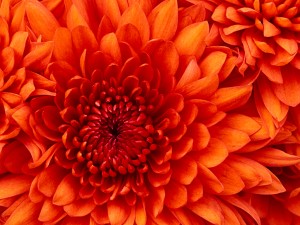
Like all parents who think their child is imbued with extraordinary intelligence until it becomes an adult (when the real worth becomes apparent!), the practitioners of a system of medicine hold their own in a high esteem and are not prepared to accept its limitations. They regard their system sacrosanct, nothing less than God’s dictate. And yet there has been talk of integration and the necessity of including the best of the different strands into medical practice. So much has been written about this for so long; but like the tide, its waters merge into a vast ocean of ignorance. Humans cannot conquer their egos, and whenever there is discussion about integration, the underlying inferiority complex of someone shoots the idea down.
There are mainly twenty or so different systems of medicine practiced in the world. Certain countries have produced legislation to bar the practice of many so called alternative systems of medicine unless they conform to scientific standards. But every patient wants to be cured of illness and is hardly bothered about how it is achieved. So what needs to be done?
A simple answer would be a unified system. How can this be achieved is the million dollar question. Attempts were made in India by the Director General of Health Services to bring top practitioners of different systems under one roof so that they could consider ways and means of achieving something which might be called a ‘national system’.
But what was the result? Chaos. The so-called system practitioners started highlighting the pitfalls of all the others and the meetings could achieve nothing.
It resembled a heated dispute between two ‘lovers’ of Shakespeare who were quarrelling about whether Macbeth or Hamlet was superior. However each when asked if he had read the other play had to say no, since none had read both.
For the patient or family, it is often a dilemma who should be consulted if the usual medical expert who has been looking after them fails to give relief. There are no guidelines since the type of system best suited for a particular patient is not available. In America, there is a vast array of doctors and medical personnel specialising in a particular set of symptoms or illness. But it is an ocean and it is often impossible to choose from the list.
Many talk about holistic medicine, a holistic approach etc. but neither is it taught in the medical schools nor is it practiced. Only lip service is given. It is doubtful if there is a single textbook on holistic medicine for medical students.
We don’t even have an integrated body in India to look after medical teaching. No doubt, there are more than 200 medical colleges for the ‘modern system’ and about 150 for homoeopathy. There are more than 100 colleges of Ayurveda. We produce about 50,000 so called registered doctors in India and if you add to it all unregistered practioners we have a mass of medical personnel at our disposal.
One can ask why is it that, with so many experts available in the country, health for all has not been achieved?
The answer lies in an over production of Human Man Power (HMP) on one side and mal-distribution on the other. Besides, the tools of health care are simply not available for one reason or the other.
What are the basic requirements for good health? Everyone knows it: food, water, air, clothing and shelter. And none of these are in the hands of doctors or medical people. They deal only with illness and the housing for illnesses, i.e. dispensaries, clinics, nursing homes and hospitals.
Therefore the first thing that we must clearly define is: ‘What is health’, ‘What is medical care’ and assign responsibility to people with authority to look after the parameters of health and the parameters of illness on all levels.
Only then we can identify and create correct objectives of medical institutions and assign specific responsibility to the different categories of health power.
The ultimate question remains – which alternative system will survive? Only time will tell, but meanwhile we should continue to study in an unbiased manner the outcome of various therapies. Truth cures and truth survives.
Dr. Bisht
(Dr. Bisht was the Director-General of Health Services, Govt. of India and Deputy Regional Director of WHO (South-East Asia Region). He is a co-founder and Chairman of the Sri Aurobindo International Institute for Integral Health and Research (SAIIIHR), Pondicherry. He is the author of many books and journal articles.)





